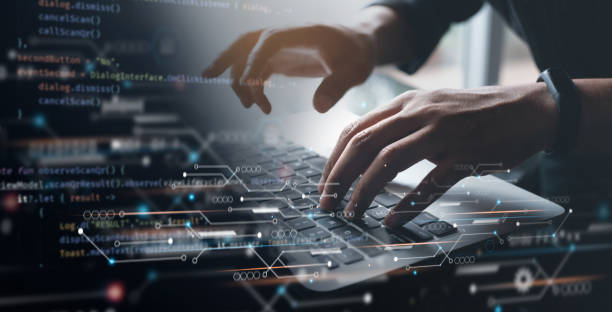
Technological
In particular, we’ll be looking at 15 technologies that, in our opinion, will have a significant impact on our world by 2030.
Let’s explore what the future holds for us as some of these technologies may appear like science fiction, but I assure you that they will become a reality sooner than you think.
1) Brain-computer interfaces

With the use of a brain-computer interface (BCI), users’ electrical impulses can be recorded and used to guide actions simply by thinking about them.
People who suffer from paralysis or other disorders that impair their ability to move are already receiving assistance from BCIs.
As BCIs grow more common, people will be able to operate things with just their thoughts. Some scientists even think that BCIs may be utilized to improve cognitive functions in humans, enabling them to process information more quickly or retain more information.
2) Extinct species could be resurrected

Thousands of creatures and plants have vanished from the face of the Earth forever as a result of the centuries-long campaign by people to drive certain species to extinction, whether for food, sport, or just plain ignorance.
But with the advent of genetic engineering, it might now be able to revive some of these extinct species. By utilizing DNA samples for specimens in museums or preserved remnants, researchers might be able to rebuild long-dead plants and animals.
De-extinction is a procedure that raises many ethical questions, yet it has the potential to greatly aid conservation efforts. For instance, if a species that has vanished from the wild could be successfully revived, it could be returned to its native environment.
In a world when so many species are fighting for survival, the capacity to bring back extinct species may be our best chance to ensure a healthy future for all life on Earth. This would help to restore ecosystems’ balance and avoid new extinctions.
3) Making food that tastes exactly as you want

By 2030, there will be gadgets that allow you to virtually alter the flavor of the food you eat. You will be able to select from a variety of flavors and aromas to personalize your culinary experience. The gadget will be a physical device that you can put in your mouth.
For instance, you can adjust the sweetness or savory taste of plain bread to your taste, or you can reduce the flavor strength of something like steak that is already pretty tasty to your desire.
Imagine being able to instantly improve the flavor of your favorite dish or transform a mundane meal into an unforgettable culinary experience. We also anticipate a revolution in online shopping as we gain the ability to digitally taste from the comfort of our own devices or TV cooking programs that allow us to experience the taste of the food on screen. We will use these devices to create our own personal flavor profiles for every food we eat.
4) We will be able to travel to any part of the world in a matter of hours
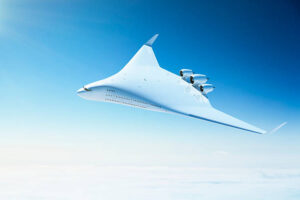
In the modern world, our ability to travel is sometimes restricted by time and distance. However, what if we could get over these obstacles and spend only a few hours traveling anywhere in the world?
Though it may sound like science fiction, technological advancements are making it possible for us to travel great distances in a short amount of time thanks to the advent of high-speed rail and supersonic aircraft.
The number of people who can travel will greatly increase as a result, and it will also make it easier to visit several places on a single trip. In addition, conducting business and staying in touch with loved ones who live far away will become easier. The possibilities are endless, and the future of travel appears to be very exciting.
5) We will use digital perfumes and deodorants to control how we smell to others

Although we can use deodorant or perfume to cover up our natural stench, these items are not very effective in masking body odor, so we no longer have complete control over how we smell to other people.
A new way to manage our sense of smell will be available in 2030: digital perfume and deodorant. These products use sensors to identify body odor and then release a matching fragrance to neutralize the smell. The outcome is a personalized scent that is always inviting and fresh. Rather than requiring frequent reapplications throughout the day, these products can be programmed to release small amounts of fragrance as needed.
6) We will solve the problem of climate change.

Climate change will cause more natural disasters in the future, including hurricanes, floods, and wildfires. As the effects of climate change worsen, governments and businesses will be compelled to take action, which will result in a shift away from fossil fuels and toward renewable energy sources as well as the implementation of new laws and regulations aimed at protecting the environment.
The deployment of artificial trees is one promising solution that scientists are looking for to reduce the amount of carbon dioxide in the atmosphere. These devices have a filtering system that is thousands of times more efficient than real trees at capturing and removing carbon dioxide from the atmosphere. Artificial trees can contribute to a cleaner, healthier environment for everyone by slowing down the effects of climate change.
7) Robots will be doing many everyday tasks for us.
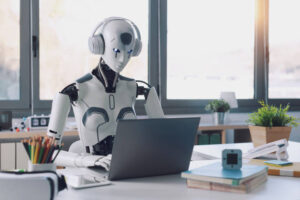
Robots will soon be performing many of the daily tasks that humans currently complete, such as making breakfast and driving to work. This will become more and more commonplace in our lives, which some people may find concerning as they envision a time when humans will be subservient to their robotic overlords.
But there are a lot of reasons to think that humanity will benefit in the end from the advent of robots. For starters, robots are more capable than humans at various tasks; they can work faster, longer shifts without getting tired, and they make mistakes less frequently.
Robots can also be outfitted with sensors and other technologies that enable them to obtain data and make choices faster than people. As a result, the employment of robots will boost productivity and efficiency.
Additionally, robots can assist in relieving human workers of tedious and hazardous tasks. For example, consider a doctor or construction worker who can operate a crane from the safety of the ground or a surgeon who can perform surgery with the aid of a robot arm. In these scenarios, robots would not only be safer and more efficient than humans, and in the end, humanity will gain a great deal from the development of robots in terms of efficiency and safety.
8) Doctor visits will be replaced by automated examinations
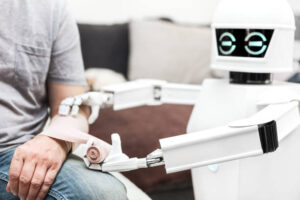
The future of healthcare may look very different from what it does now. With the advent of new technology, many common examinations and tests will be able to be performed by machines. Patients will only need to describe their symptoms and medical history to a robot in order for the machine to diagnose them; the machine will even be able to prescribe medication.
Even though it may sound like science fiction, automated doctor visits are already happening in China. For instance, IBM has created a robot doctor prototype that is being tested in hospitals, and in the US, businesses like Teledoc already provide video chat-based virtual doctor visits. As a result, it is not difficult to envision a time when doctors visit patients exclusively through machines.
Also Read: 25 HIGHER LEVEL TECHNOLOGICAL DEVICES
9) 3D printing of everyday Goods in later human organs
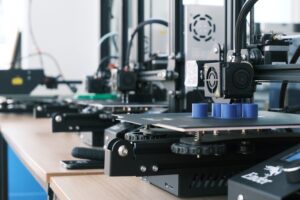
3D printing will be nearly 30 times faster in the next two years than it was in 2023, and at that speed, we will be able to build the majority of consumer products in 2030 from near food.
Some are concerned about the potential environmental effects of 3D printing, but as the technology advances and becomes more effective, those worries will fade. People will start using 3D printing for everyday requirements, and this is exciting since it will lead to the fabrication of basic human organs.
10) Infrared drone monitoring systems
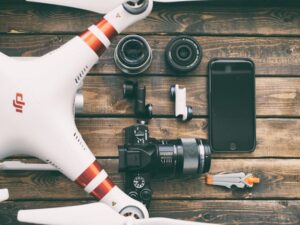
The need for accurate and current information is growing as the world gets more connected. One way to collect this information is by using drones fitted with infrared cameras, which can give a real-time view of an area and make activity monitoring simple.
They can also be used to identify possible dangers like flooding or fires. By 2030, infrared drone monitoring systems will be a crucial safety and informational tool, helping to drastically lower the number of fires and floods.
11) Wireless electricity

Imagine a time when charging your phone wouldn’t require you to put it in a docking station or, worse, have it plugged in to a power source.
The days of tangled cords and outlets will be long gone by 2030; according to our predictions, you will be able to enter a room and have your phone begin charging wirelessly.
This technology allows all devices within a specific range to connect and charge wirelessly, much as how Wi-Fi networks allow devices to connect to power.
12) 6G technology

To put this into perspective, 5G technology will be replaced by 6G, which will have download speeds of up to one terabyte per second. This means that 142 hours of high-quality video may be downloaded every second. Six is around 8,000 times faster than 5G.
6G will usher in a new era of mobile communication, changing, among other things, how we live, work, and play with its unparalleled speed and capacity. 6G will make advancements in augmented reality, virtual reality, and the Internet of Things possible. The World as We Know It Will Change with 6G Technology.
Also Read: 14 Computer Tricks You Ought to Have Acquired Early
13) Our cars will drive themselves

Imagine a time in the not-too-distant future when you can work, read, or sleep in the luxury of your own vehicle throughout your commute.
Fully autonomous vehicles, which utilize a combination of sensors and artificial intelligence to traverse the roads without the driver’s involvement, will become more commonplace in the coming ten years.
Even while this technology is still in its infancy, it has already showed a lot of promise. In the years to come, we will witness significant advancements in autonomous driving, and eventually, completely autonomous vehicles will transform transportation by reducing traffic congestion, making our roads safer, and
14) Automated robotic police forces
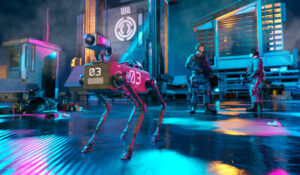
The function of law enforcement is evolving. They used to be mostly concerned with responding to crimes after they had already occurred.
However, the introduction of new technologies has allowed police forces to stop crimes before they start. One of the biggest changes is the growing usage of robots. Automated patrols can be used to monitor high-crime regions.
Police forces are becoming more automated, and by 2030, we predict that about 50% of the police force will be replaced by robots, which will play a significant role in keeping communities safe. These robots will have sophisticated sensors that can detect suspicious activity, and they can also be used to monitor social media and other online platforms for signs of potential threats.

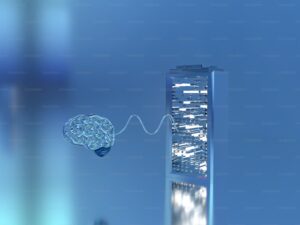
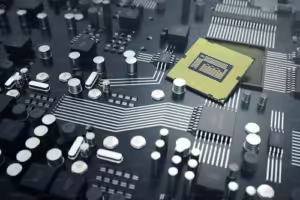




2 thoughts on “14 New Technological Forecasts for 2030 That Will Reform The World”